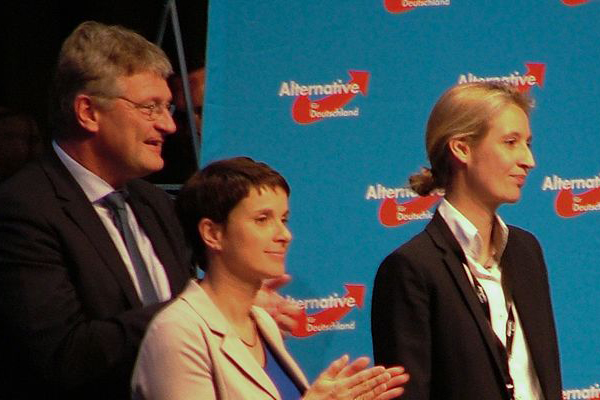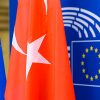
And now Germany: similarly to most other European countries, the Federal Republic will now also have a right-wing party decisively present in its national parliament. The 13% share of the vote achieved by Alternative für Deutschland (AfD) in the 24 September elections could almost be called a landslide victory. Beyond its strongholds in the East of the country, where it gained almost 30%, its appeal now extends to a large part of the West, where in many places its support reached double digit figures.
The country as a whole, however, even 26 years after reunification, still reveals differences in terms of electoral preferences. In the 1990s and early 2000s the far-left party Die Linke attained power in all states in the former East. It has now lost many voters to the new right. In the West, on the other hand, right-wing parties seemed to peak every 10 years or so, only to disappear shortly after. Usually, after a trial run in state parliaments, the electorate would turn its back on them and they failed to get voted in again.
So far, West Germans seemed to have had their fill of extremism, which had led the country into the catastrophe of the Second World War and the Shoah. Nazism was not to be allowed to return. The belief that a strong leader and his rhetoric have the capacity to solve all a country’s problems was frowned upon. Today’s right-wing extremists in AfD have a whole array of front-line figures but no single leader, while their rhetoric resorts to praise for the German Wehrmacht and revisionist claims on the occasion of Holocaust commemorations. The real news is that the new right-wing populism is a pan-German phenomenon, and that in Europe’s largest country.
Since the elections the German and international media are trying to wrap their heads around the AfD’s success. Undoubtedly the refugee crisis of 2015, where up to one million refugees from Syria, Iraq, Afghanistan and Somalia made it into Europe and then on to Germany, has played a role, as claimed by analysts. With only a small appeal to the the electorate, the AfD had started off 2013 as a party largely hostile to the EU and the Euro, with little forward momentum. When the refugees started to arrive to Germany, one of the AfD personalities, Alexander Gauland, cheered since they were a godsend to the party. The xenophobic anti-muslim narrative helped to quickly attract supporters: in the state of Sachsen-Anhalt the party gained 24% of the vote in the state election and in Baden-Württemberg 15%. Gauland himself is a proud defender of the Wehrmacht and its action in both world wars and he is only surpassed by Björn Höcke, who claims the Holocaust Memorial in Berlin should be considered a monument of shame for the Germans, urging the country to move on and discard any memory of the Shoah. Analysts disagree on whether this sort of rhetoric helps the AfD, but the party is now present in 13 of the country’s 16 state parliaments and in the national parliament, the Bundestag.
The Bundestag in the Reichstag building is now the party’s window to the world. In its own view it is on equal terms with other similar movements across Europe. But, more importantly, it is also on the radar of the international media, which usually do not take much interest in German state-level politics. Hence, right-wing movements had previously gone by unnoticed. Focusing on a single topic, they failed to make any mark once confronted in parliament with real legislative issues: they were unable to present any specific opinion on vital topics such as pension funds, retirement age or environmental protection. The AfD made it into the Bundestag without having a precise pension model, and that in an aging society such as Germany.
In the weeks before the election, the AfD sank to 7% in the polls, as was to be expected given the previous experience with far-right-wing parties. But suddenly –and there is much speculation about the reason–, it rose to 12%-13%, a figure very close to the final outcome. As a result of the success of the right-wing populists, much in the political spectrum in Germany has shifted to the right. It is a dangerous development as the hope that people might return to traditional parties simply because they can be more like the AfD is delusional. In Bavaria the conservative Christian Social Union (CSU), sister party to the Christian Democratic Union (CDU), has governed for almost 70 years, lost 11% in the federal election. It tried to mimic the new appeal and rhetoric of the AfD, but when people have the choice between the original and a copy, they go for the original. Very sadly so in this case.

